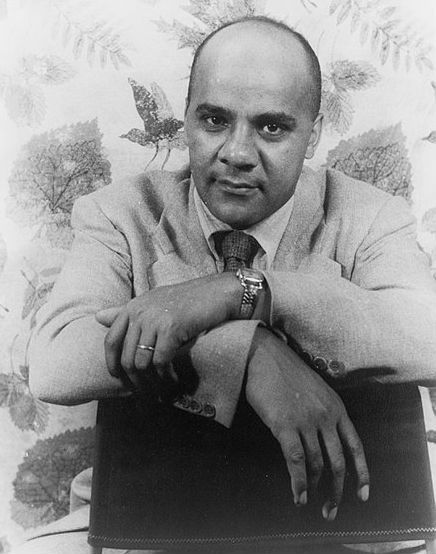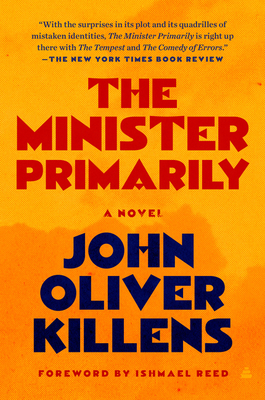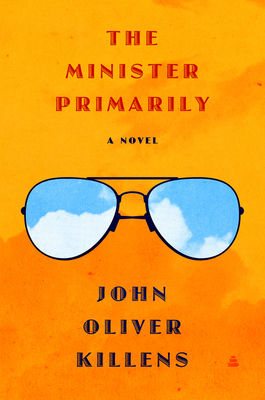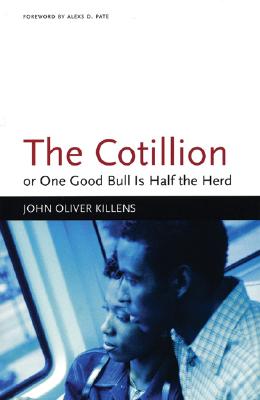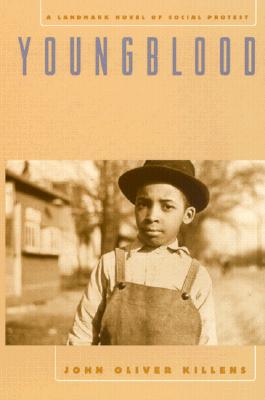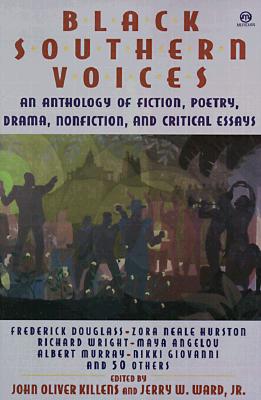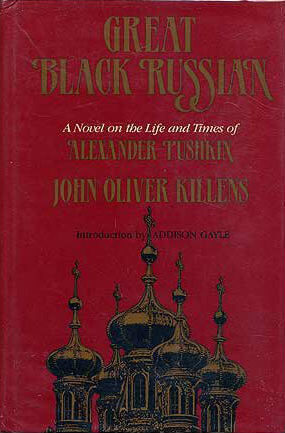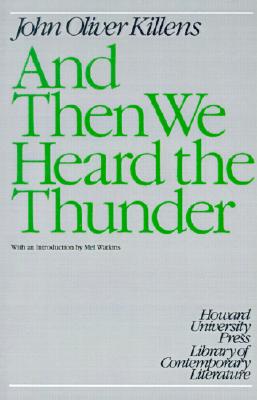John Oliver Killens
“The Godfather of the Black Arts Movement”
John Oliver Killens is a 2-Time AALBC.com Bestselling Author
John Oliver Killens was an important figure in the Black Arts Movement of the 1960s, Killens was a close friend of Martin Luther King and other civil rights activists.
Killens created the National Black Writer’s Conference (which has been hosted every few years at Medgar Evers College since 1986), was a Medgar Evers College professor and one of the most respected authors of his time. He died of cancer on October 27, 1987. He was 71 at the time of his death and lived in the Crown Heights section of Brooklyn, New York.
The Killens Review of Arts & Letters, published by the Center for Black Literature and Medgar Evers College (CUNY), was named in his honor in 2010.
The following was originally Published Black Issues Book Review, July-August, 2004 by Keith Gilyard
John Oliver Killens’ large, multilayered, debut novel, Youngblood, was published in May 1954, the same month that the Supreme Court ruled in the case of Brown v. Board of Education. As we note the 50th anniversary of that landmark act of jurisprudence, compelling reasons exist to remember and to celebrate Killens as one of our most important cultural figures.
Taken as a whole, the fiction of John Oliver Killens anticipates the drama of playwright August Wilson, who is approaching the conclusion of a cycle of 10 plays, each designed to illustrate African American life in one of the decades of the 20th century. Similarly, most of Killens’s major works connect to a particular era and set of concerns in African American history. Unfortunately, most of his books are out of print. Great Gittin’ Up Morning (1980) explores the antebellum period through the eyes of a fictionalized Denmark Vesey and his partners in a slave rebellion that occurred in South Carolina in 1822. (The story is geared primarily toward younger readers, but it packs a punch comparable to Black Thunder, Arna Bontemps’s excellent 1936 novel about the Gabriel Prosser insurrection.) Killens’s last published novel, Great Black Russian, imagines the life of Alexander Pushkin, who was a contemporary of Vesey on the world scene, but the crucial action and drama in the novel unfold in the decade or so following Vesey’s death. A Man Ain’t Nothin’ but a Man, spun around the legend of John Henry, examines the struggle of African Americans—and the working class overall—in the 19th century, post Emancipation era.
Youngblood (1954) is a book about struggle on lira Crow terrain toward black self-determination and economic justice over the first third of the 20th century. And Then We Heard the Thunder (1963) is easily the best treatment we have in fiction of the African American military experience during World War II. ’Sippi (1967) dramatically chronicles developments from the onset of the modern Civil Rights Movement to the dawn of the Black Power Era. The Cotillion; or One Good Bull Is Half the Herd ((1971) depicts cultural politics in the post-Malcolm period before 1970. In addition to his novels, Killens wrote numerous short stories, plays and scripts; he was the first African American to receive solo screenplay credit for a Hollywood movie, the 1959 Odds Against Tomorrow.
Killens articulated African American heroism, particularly within a family or community context, and offered a set of values he felt was liberating. Black nationalism is always a feature of his work; the community-oriented activism and armed self defense in some of his portrayals make this clear. But ever present is transformation.
Langston Hughes, Richard Wright and Margaret Walker were literary influences he always acknowledged. His students included novelists Tina McElroy Ansa, Bebe Moore Campbell, Arthur Flowers, Nikki Giovanni, Elizabeth Nunez and Terry McMillan. All recall a soft-spoken man who was generous with his time, praise and humor. He always talked about the need for artists to be politically engaged and responsible—both in their craft and their broader lives. His own life was a fine example.
In 1950, Killens became the founding chairman of the Harlem Writers Guild, a still-active workshop whose members have authored hundreds of books and sponsored numerous activities to promote African American literature. A couple of years later, he and close friend John Henrik Clarke assisted Malcolm X with the founding of the Organization of Afro-American Unity.
Although Killens remained involved with various political efforts into the 1980s’the FBI kept a file on him for five decades’he devoted an increasing amount of time to his work as an educator and cultural organizer. He held appointments at the New School for Social Research, Fisk University, Columbia University, Howard University, Bronx Community College and Medgar Evers College in his home borough of Brooklyn. He generally insisted on running a writing workshop for the community in addition to his responsibilities to the students enrolled on campus.
Despite the great demand upon his time, Killens, naturally gregarious, loved to draw artists and intellectuals around him for discussions about literature and politics. In conjunction with his teaching appointments, he directed a series of writers’ conferences between 1965 and 1986 that serve as milestones in African American literary history. That tradition continues with the biennial National Black Writers Conference at Medgar Evers College in Brooklyn, which this year presented a tribute and symposium to Killens.
Killens was unwavering in his love for black people. We should continue to return that love with our remembrance.
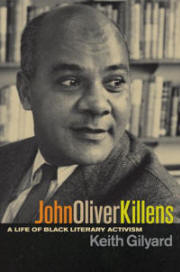 John Oliver Killens: A Life of Black Literary Activism
John Oliver Killens: A Life of Black Literary Activism
Read an AALBC.com Review
John Oliver Killens’s politically charged
novels And Then We Heard the Thunder and The Cotillion; or One
Good Bull Is Half the Herd, were nominated for the Pulitzer
Prize. His works of fiction and nonfiction, the most famous of
which is his novel Youngblood, have been translated into more
than a dozen languages. An influential novelist, essayist,
screenwriter, and teacher, he was the founding chair of the
Harlem Writers Guild and mentored a generation of black writers
at Fisk, Howard, Columbia, and elsewhere. Killens is recognized
as the spiritual father of the Black Arts Movement. In this
first major biography of Killens, Keith Gilyard examines the
life and career of the man who was perhaps the premier African
American writer-activist from the 1950s to the 1980s.
Gilyard extends his focus to the broad boundaries of Killens’s
times and literary achievement’from the Old Left to the Black
Arts Movement and beyond. Figuring prominently in these pages
are the many important African American artists and political
figures connected to the author from the 1930s to the 1980s’ W. E. B. Du Bois, Paul Robeson, Alphaeus Hunton,
Langston Hughes,
James Baldwin, Martin Luther King Jr.,
Malcolm X, Harry
Belafonte, and Maya Angelou, among others.
Photo Credit: Carl Van Vechten
Are you the author profiled here? Email us your official website or Let us host your primary web presence.

